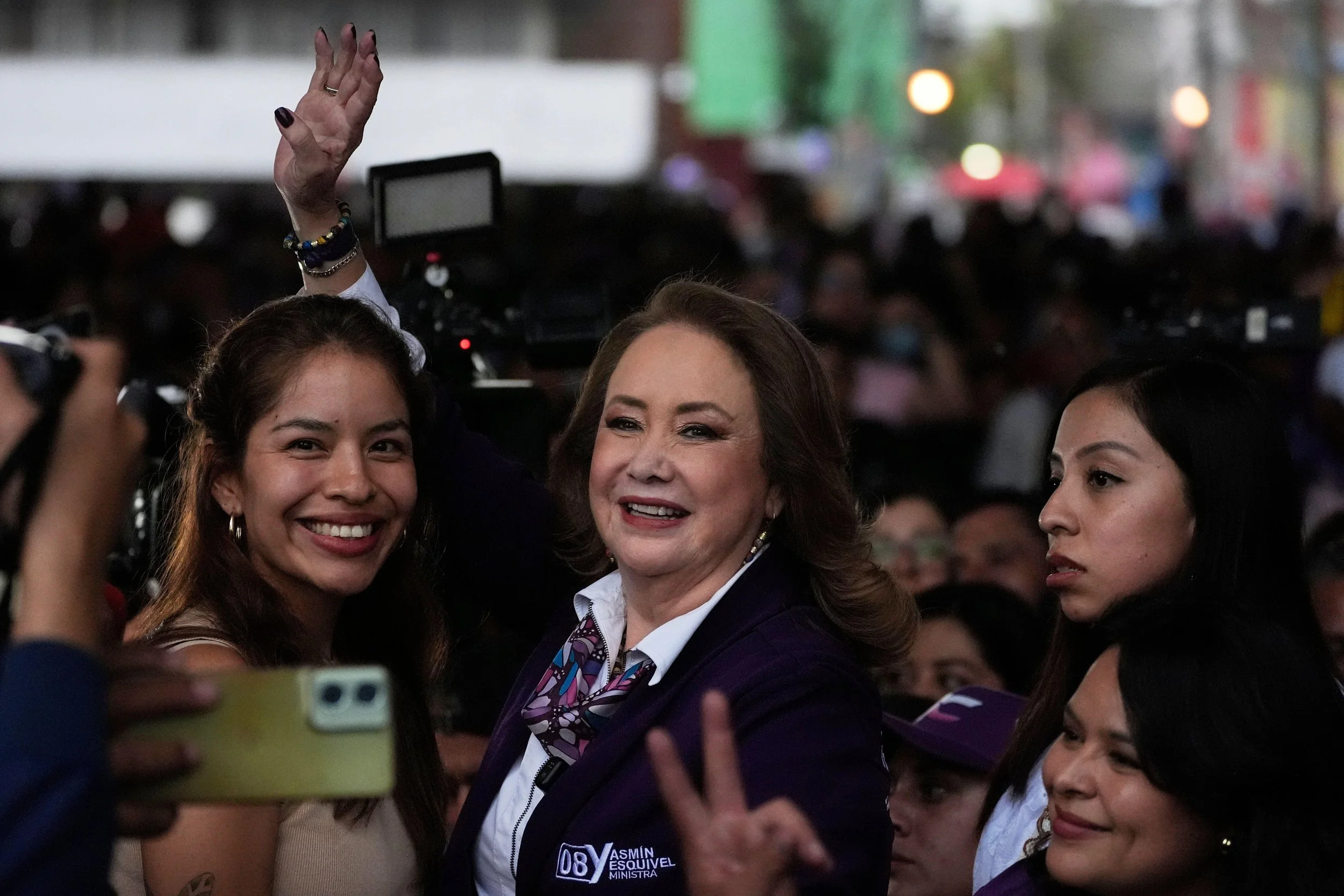Three points on Mexico’s judicial vote
by Luis Rubio.
Mexico’s judicial reform reaches its critical moment this coming Sunday. After the constitutional reform was approved last September, this Sunday citizens will vote for judges, magistrates, and justices of the Supreme Court of Justice. There is no precedent in the world (with the small exception of Bolivia) where a country has undertaken an exercise of this nature. The requirements for someone to aspire to one of these positions were minimal and unrelated to the function they are to perform. In fact, the most important requirement was having been approved by a panel in which Morena had a majority in almost every case. However, this does not mean that Morena is (or acted as) a monolithic bloc; rather, everything indicates that the candidates for the various positions reflect the diversity of interests within Morena’s factions and some societal groups, including organized crime.
The main argument used to justify the election was that democracy means electing judges directly by the electorate. The logic behind this is a literal interpretation of democracy, as opposed to the traditional liberal definition, which includes checks and balances. Above all, the reform rejects the notion that the role of the judiciary is to interpret and enforce the law, and, in the case of the Supreme Court, to resolve “ties” between the other two branches of government - the executive and the legislative.
Three considerations about what lies ahead:
First, no one in Mexico can deny that the judicial system is not designed to serve the needs and demands of the population. Accessing the judiciary is difficult, costly, and largely irrelevant. Those who end up in legal proceedings experience a hellish ordeal filled with abuse, corruption, and enormous personal and financial costs. The notion of “swift and prompt justice” prescribed by the Constitution is simply non-existent. Certainly, some companies have the power and capacity to pursue their interests, but they are exceptions.
However, the judicial reform is not designed to address any of these issues. Its stated objectives, as expressed in the "whereas clauses" of the constitutional reform initiative, show no concern in this regard. In other words, the reform is neither motivated by nor aimed at improving the quality of justice in Mexico.
Second, the reform’s objective is political. It stems from former President López Obrador’s dissatisfaction with how the Supreme Court struck down several of his legal initiatives as unconstitutional, particularly those related to energy. The idea behind the reform, to paraphrase Lenin, is “all power to Morena.” That said, it is unlikely that the election winners will represent Morena as a whole. More likely, each interest group within Morena - the presidency, organized crime, and some segments of society - will have its own “faction” of judges reporting to them.
In any case, justice will not be the outcome, because it was never the objective.
Finally, the election was intentionally organized in a complicated manner to obscure its true objectives. It was so complex that several governors, Morena leaders, and other sectors ended up designing guides to “instruct” their bases or clienteles on how to vote.
Most likely, the judiciary will end up weakened, and by opposing the election, the opposition will face significant difficulty in mobilizing votes in the next federal election.
Rumors suggest that the idea of controlling the judiciary came from Brazil’s President Lula, who warned AMLO that if he didn’t control it, he could end up in jail like Lula did. The irony is that the same logic could apply to President Sheinbaum once her term ends.
Editor’s note: the author is Chairman of México Evalúa.


